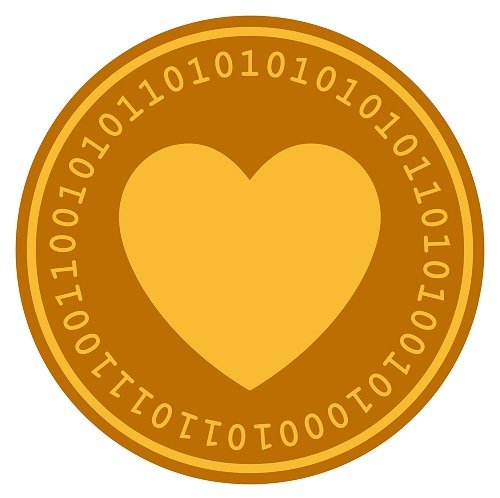
Late stage degeneracy.
When I first got into crypto the investment narrative at least made logical sense, even though ultimately most new projects were failures. The reason for this was the concept of "utility". A utility token was something that presumably needed to exist so it could perform a critical function that was lacking within the industry. Of course if we look at the ICO craze of 2016 it's quite obvious most dev teams were greatly embellishing or outright lying about what their token could do, and that strategy hasn't changed over the last decade. The industry is littered with false advertising, over-marketing, and empty promises.
Defi 2020
In the last cycle most of the "utility" was relegated to yield farming and financial sorcery. Of course once again 99% of it turned out to simply be purposeful hyperinflationary nonsense that failed almost immediately. So much for sticking it to the man and showing the fiat world that anyone could make a better product.
Memecoin 2024
Are we seeing a pattern here? It's almost as if the entire landscape is completely devolving over time. Went from generic utility to DEFI utility to zero utility over the course of three cycles. Of course I haven't given up hope in the industry, but many of my theories about how this was gonna go down have been proven painfully wrong.
These days degens in the "trenches" are nothing but greedy PvP scalpers looking to make it big in the casino. They about utility anymore. They don't care about sustainability or circular economy. They want to put in the least effort and extract the most profit, and it doesn't matter who needs to be stepped on to achieve this goal. Every memecoin launched on Solana's pump.fun is explicitly not even a security by even the most stringent regulators because the expectation of a viable product "to be derived by others " is utterly nonexistent.
The house always wins.
Which is funny because it's never been easier to launch your own token and make yourself the house, and yet even that small amount of work is enough to deter most degens who simply want to gamble away their no-so hard-earned money. Easy come easy go.

So when is a token actually justified?
Well the most obvious answer to that is when a community comes together and decides they need a new form of consensus that doesn't exist. Unfortunately this is not how the world works yet. WEB3 still does not largely exist. The culture does not exist. Pretty much all projects are created by some centralized dev team with the hope that it will gain adoption, which is the main problem with all of this.
Token first community second utility third.
We are supposed to be designing open source technology over here, which means we should not be reinventing the wheel, and yet all the devs get constantly locked in to reinventing the wheel and issuing a new token simply because that's the only way they can think of to make money for themselves and justify the work in the first place. That's not really an open-source type of mindset to begin with so it's certainly something we could use a solution to.

Inflation rate
Most justifications for new forms of consensus are almost always going to revolve around the issuance of new tokens. Presumably the community in question needs to mint tokens out of thin air in order to subsidize certain behaviors. The most basic form of this is paying users who secure the network to continue securing the network. What's an open-source borderless network without security? A single attack could bring the entire thing down if there's no incentive to defend the attack. Bitcoin does this with mining. Hive does it with witnesses voted in like a republic. Ethereum does it with direct stake-weighted voting.
Conceivably there are an infinite number of reasons to print a token and issue it to valuable community members working hard to add more value to the network than they are extracting. But that gets very tricky because the second anyone can control issuance, corruption is bound to set in sooner or later as the powerful use their power to enrich themselves. That's just basic human nature at this point and we should accept it as fact. The "benevolent dictator" timeline is a one-in-a-million occurrence. This is why Bitcoin has been so successful; thus far the risks of inflation have never proven to be worth the reward. Bad "investments" are bad.

Within the context of gaming:
Most games, even blockchain games, do not need a native token. Why? Because they are all inherently centralized to begin with. Why create some random token on the blockchain when you can just issue in-game assets like "gold" inside the game itself? The "gold" in the game is already the currency. You don't need another currency on top of that. What's needed is a liquidity pool from "gold" to Bitcoin (or a native token that the game is built on like HBD).
Not a single entity in the entire world has even attempted to create an actually decentralized RPG on a blockchain, and for very good reason. That's a highly complex and potentially wastefully inefficient endeavor. Again maybe we are just "still early" and the tech simply just does not exist yet, but the current advantages and disadvantages of decentralization speak for themselves at this point. You only want as much decentralization as you absolutely need to mitigate corruption from seeping into the product. Any more than that is woefully inefficient and littered with diminishing returns.
Conclusion
Most new tokens that get minted, especially within this cycle, have been completely unjustified. Will the crypto community ever give up on chasing the shiny new thing and finally opt to lay down roots and build real sustainable value? Certainly some of them will, but the infinite greed monster will always be luring new people into the degen casino.
Do you feel like RWA tokens fit that narrative that you put out? I feel like they could fulfil a need if they are representing something.
Real World Assets and "supply chain" coins are one of the oldest scams out there.
You can not represent a real world asset digitally...
or rather you can't SECURE a real world asset digitally.
A cop is not going to arrest someone because you downloaded their JPEG.
A cop is not going to evict someone because you claim to own the private key to the house.
The entire legal system would have to completely disappear and be reinvented for RWA to be a real thing.
I feel especially vindicated on this issue because I introduced a high powered lead dev from a big entertainment company in LA to Ethereum in 2018/2019. They asked me about real world assets and supply chain and I told her absolutely not don't even try; it won't work... then years later she got back to me and was like yep you were right it didn't work for the exact reasons you said... lol.
So I am guessing you aren't a fan of VET?
don't know anything about it
Art has not imitated life to the extent living things are far more than minimally decentralized. In the crypto ecosystem, advantages of centralization are a reflection of the complexity of the system - which is rapidly advancing atm - and the simplicity of the current system favors high centralization, because that enables control of the use of the coin to maintain and increase it's utility, which encourages it's adoption.
IRL, nutrient flows are extraordinarily diverse, as are means of tapping them. The vast majority of living things are the most decentralized organisms that can exist: single cells. Macrobiological creatures, however, maintain their niche in the ecosystem by succeeding at most efficiently acquiring the resources they are evolved to capture, and dominate ecosystems in terms of biomass.
Cryptocurrencies aren't the initial beginning of life, long preceded by glass beads, gold, stone wheels, and beaver pelts, but the present explosion of forms and kinds of money in some ways resembles the Cambrian Explosion, in which living things suddenly produced an almost infinite diversity of designs (after billions of relatively gradual evolutionary changes), with one researcher (Stephen J. Gould, IIRC) positing that some species tried as many as 70k sexes, for example. That turned out to be an impractical mechanism for enabling evolution to adapt species to environments, and it turned out that two sexes proved optimal for that.
Crypto has a way to go before that myriad diversity of experiments demonstrates certain features, like body plans in living things by which we categorize them cladistically today, are optimal and necessary to almost all coins, like sexual reproduction is well established in living species today. Even sexual reproduction, however, isn't universal. Various species are self-fertile, or simply clone themselves without sex at all, and some species (of bacteria) just randomly share bits of their genomes with other species, and etc.
We're still in the primordial beginning of evolution of cryptocurrencies, and many of the features that will eventually prove out haven't yet demonstrated robust survival and domination in their niches that will someday be as obviously a good idea as teeth, or limbs. A whole lotta failure needs to happen before features are tested to destruction and the surviving mechanisms proved out.
Thanks!
We are certainly at an awkward transition phase where full/max distribution might be the ultimate goal but we haven't actually figured out how to get there or the tech simply does not exist yet.
One of the aspects of life that cryptos emulate is that each species seeks to maximally thrive*. There are population fluctuations that reveal natural limitations to total dominance of an ecosystem, population spikes in rabbits when spring rains create lush vegetation that population spikes in lynxes and coyotes immediately follow - but these are spikes because droughts follow good years, and predation, too, and then the predators' populations similarly plunge, creating a spike, not ubiquity of that species.
The mature crypto ecosystem may not produce one crypto that serves every social purpose, just as no species dominates every environment, for the same reasons. BTC dominance reflects the immaturity of crypto, IMHO. It is perhaps analogous to the dominance of blue-green algae that poisoned the anaerobic atmosphere of the early Earth with O2 by photosynthesis, and these billions of years and evolutionary experiments later, we still have blue-green algae, but life is far more productive, and O2 is fuel for an amazing diversity of animals.
What I expect of a mature crypto ecosystem - a mature economy, in fact - is similarly dizzying diversity of mechanisms that suit specific niches, and while this is hopefully not billions of years away, it's certainly beyond my feeble ability to predict how and when the requisite evolutionary events will make that happen. You're a lot smarter than me, and vastly better informed about crypto.
Maybe some of the great big balls of steel are in your court.
*Edit: the recent advent of Qubic, the predatory mining coin seeking to consume Monero, shows how early a stage in the evolution of crypt we are at.
It’s good to see the “Everything Goes Up” period finally over. And now instead seeing a tiny few winners touch 2021 All Time Highs while most the space rightfully doesn’t get close. This is a good sign that those days are over. I can’t believe anyone still thinks most crypto’s will still have a bull run just late. They are finally breaking apart action wise which is a sign the space is maturing finally.
!LADY !BBH !PIZZA !ALIVE
The security, or rather the lack of security, OPN (other peoples' network) imposes on crypto remains an unreckoned hurdle. The value of moneys is determined by the people using them. Despite Hive's present condition, it is almost uniquely able to translate community into economic power, because it is primarily a social media platform, and social media has become the largest financial sector in the global market in ~10 years, eclipsing every industry in the world, mining, agriculture, insurance, even government (maybe. I haven't enough fingers and toes to do that math). This reveals that it is people and civil society that is the fundamental basis for an economy. The bugs (features to scammers) that hold Hive back from dominating the global economy - I am not exaggerating at all - are ephemeral, specific, and few.
Hive may not be able to overcome these particular fragments of code and governance, but it may, and it's open source, which is why it exists at all, potentiating it spawning a platform that does overcome them. It's not in my wheelhouse, and my circumstances presently make that a good thing, because I could go dark at any moment, and therefore that evolution isn't dependent on me.
Evolution happens. Tech enables humanity to direct our evolution, and that is an incredible potential I hope to see fruit in the above mentioned way before I expire.
Hive has a tiny community, it’s probably overvalued if I was being totally honest. I love it here & invest time & effort to earn, but we are going much lower when the bear cycle is here for Bitcoin and such. Dime is coming!
!LADY !BBH !ALIVE !PIZZA
I agree, it is a losing endeavor. You can have one exploit, one bug etc. and your economy is now irrevocably damaged. In a centralized system, you can wish away resources gained through such exploits and minimize the impact. You also attract "players" that are just there to farm the game rather than play. Though they also exists in traditional games as well, the tokenization makes their job much much easier.
I think you don't even need this, what you need is a reward system that will reward the player for playing the game rather than cashing out resources.
Yeah it really boggles my mind that even gamer chains like AVAX are just running around doing the same old boring shit... feels like zero innovation; gaming really needs a breakthrough template.
And because they still don't understand that is the reason the Hive DApps don't explode in adoption. In this particular case, we need some web2.5
About the other things in the post, we think pretty similar.
$PIZZA slices delivered:
@geneeverett(13/20) tipped @valued-customer
Come get MOONed!